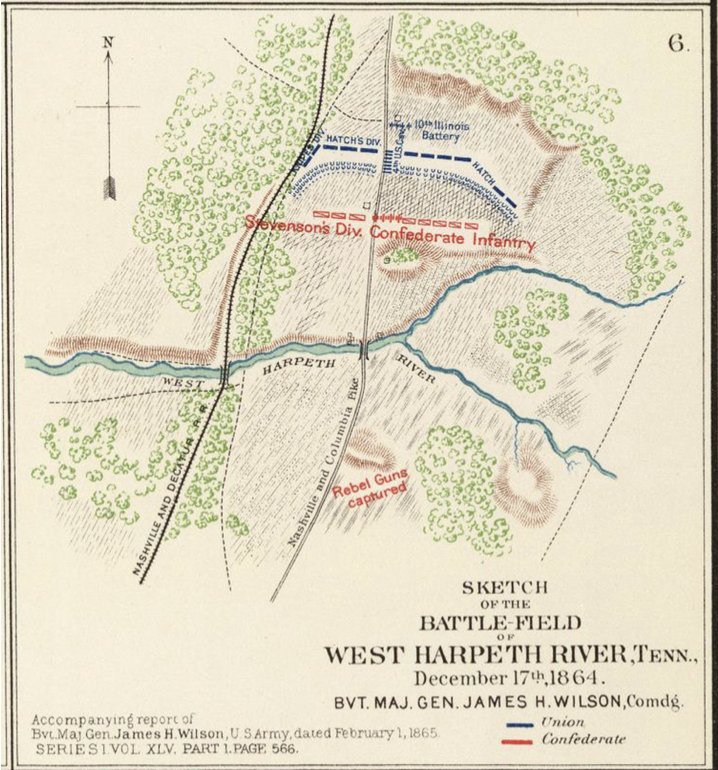On December 17, 1864 following the Battle of Nashville, Union cavalry under Gen. James Harrison Wilson pushed the Confederate rear guard out of Brentwood, down the Franklin Pike, through the Holly/Hollow Tree Gap and back over the Harpeth River to Franklin, which the Union cavalry entered shortly after noon. Confederate General S.D. Lee established a blocking position two miles south of Franklin on Winstead Hill which delayed the Union advance for several hours. While at Winstead Hill, Lee suffered a shrapnel wound and passed control of the rear guard to General Carter L. Stevenson. By about 4 pm the Confederates had been forced back from Winstead Hill to a position about 3 miles south of Franklin, just north of a tributary of the West Harpeth River. The Union infantry was unable to cross the Harpeth River due to high water and destroyed bridges so the fight was left to the Union cavalry which forced the Confederates back to another position about a mile north of the West Harpeth River. As darkness fell, the Union cavalry was able to move around the Confederate flanks which had been left unprotected by the Confederate cavalry which failed to distinguish itself on this day. Stevenson was therefore forced to form infantry squares, which was a rare occurrence in the Civil War, and managed to retreat back towards Spring Hill. Stevenson was aided in his retreat by General Clayton who heard the firing and returned to protect Stevenson’s rear. In the dark and confusion Clayton’s men were able to ambush and drive off a flanking Union column in the final engagement of the day.
Knob Gap
After seizing Nolensville, Union forces pushed south on the road to Triune. About two miles south of town, the men

